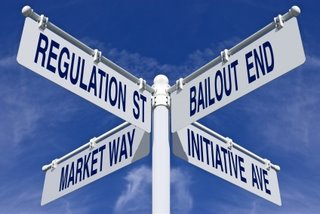The Credit Card Accountability, Responsibility and Disclosure Act of 2009 is now fully in place. The third stage of reforms went into effect on August 22, 2010.
But mainstream news doesn’t tell the whole story…
The CARD Act should be good news for consumers with credit cards, and in many ways it is, but the news around the reforms has been slightly misleading. To understand all of the provisions, you need the rest of the story.
For instance, you heard that interest rates cannot increase in the first year after opening a new account. That’s true, unless you had a 6 month promotional rate that expired, or unless you have a variable rate tied to the consumer price index, or unless you become 60 days delinquent.
After the first year, your credit card issuer can immediately increase your interest on existing balances for all of the above reasons, and they can increase your interest rate on future purchases as long as they give you 45 days’ notice.
This is probably the most deceptive of the terms so widely touted and applauded.
The truth is, the new, higher interest rate will apply to purchases made only 14 days after they send notice. How they turn 45 days into 14 days is a puzzle whose answer likely lies in some fine print somewhere, but this misconception is a dangerous one for consumers.
It sounds as if the new rate will apply, but they can’t bill you for it until the 46th day.
I’d say that’s pretty sneaky. And, call me suspicious, but I’d say they’ve promoted it falsely knowing full well that it would get consumers deeper in debt – at high interest.
Think about it…
If you believe that your rate will not go up for 45 days, you just might decide to go ahead with that major purchase you’ve been putting off. After all, if it’s something you really need and can’t put off forever – like a new refrigerator because the old one is gasping for breath – you’d naturally assume that it’s wise to get it while your rate is still low.
You’ll be “safe” if you make that purchase immediately, but if you do it on day 15 after they’ve mailed you the notice, you might as well have waited 60 days, because you will pay interest on that purchase at your new high rate.
Notice that the calendar will begin turning on the day they mailed the notice. If it didn’t arrive in your mailbox until a week later, you don’t have much time. So check the date on the correspondence, not the date you received the notice.
Author: Mike Clover
CreditScoreQuick.com





